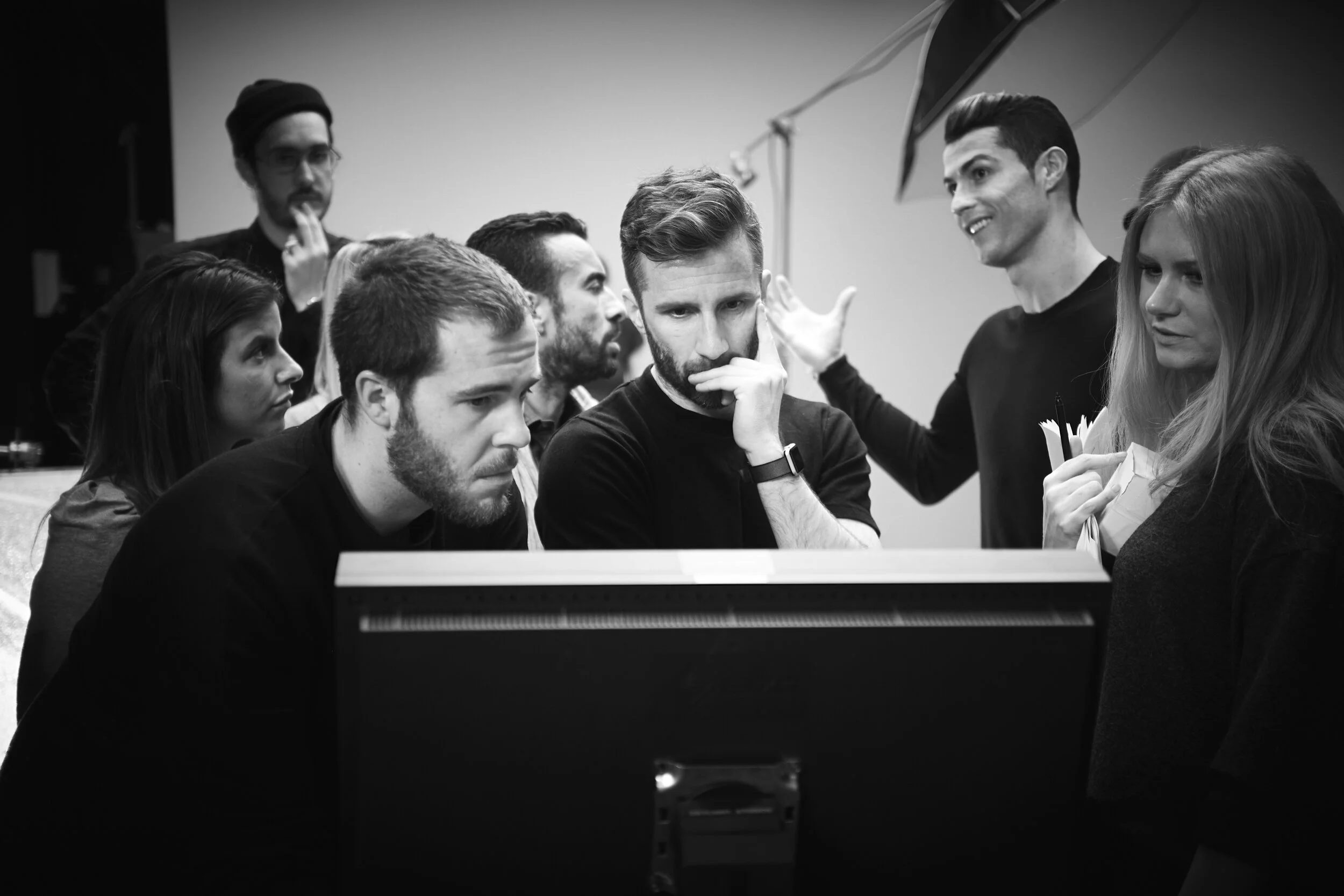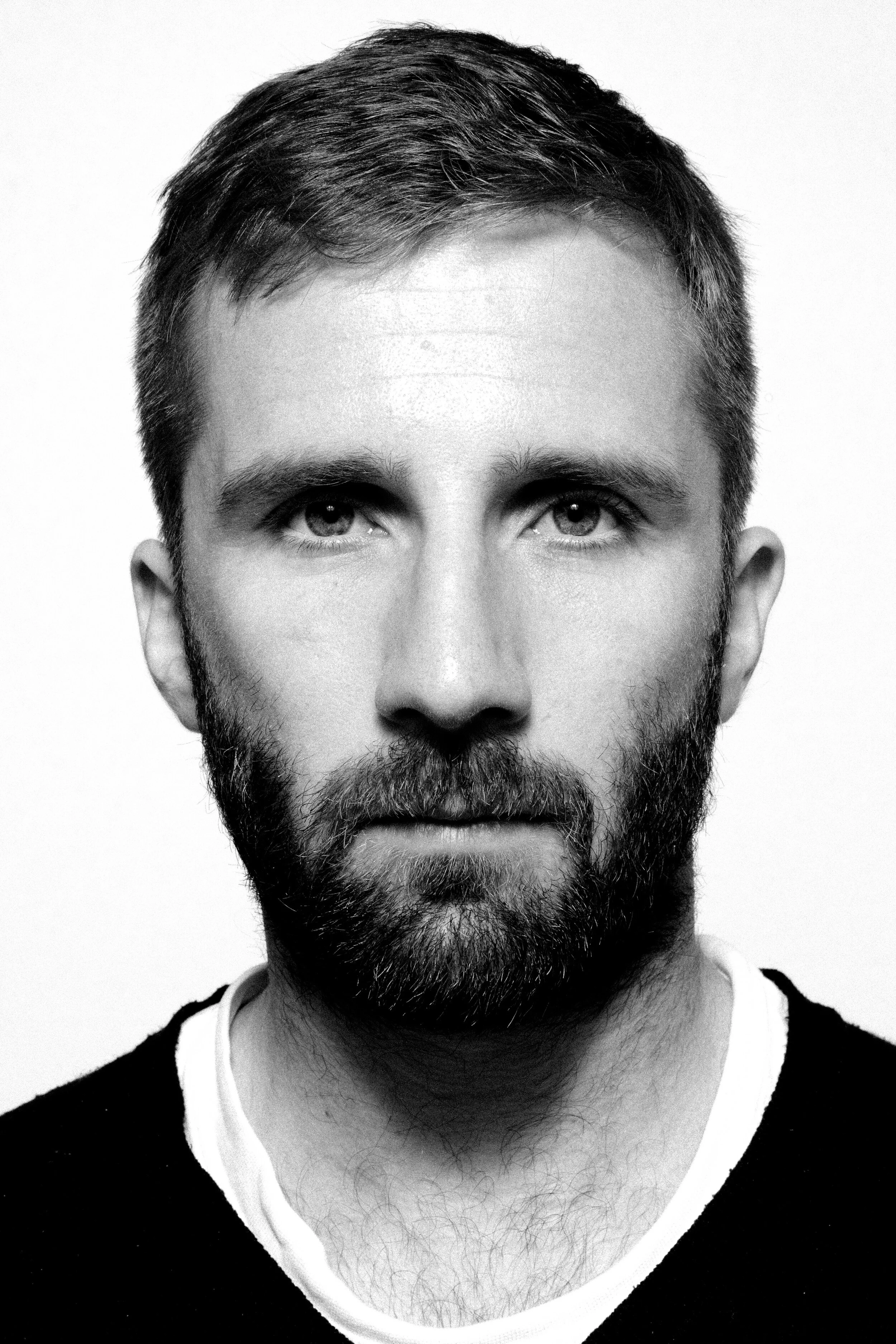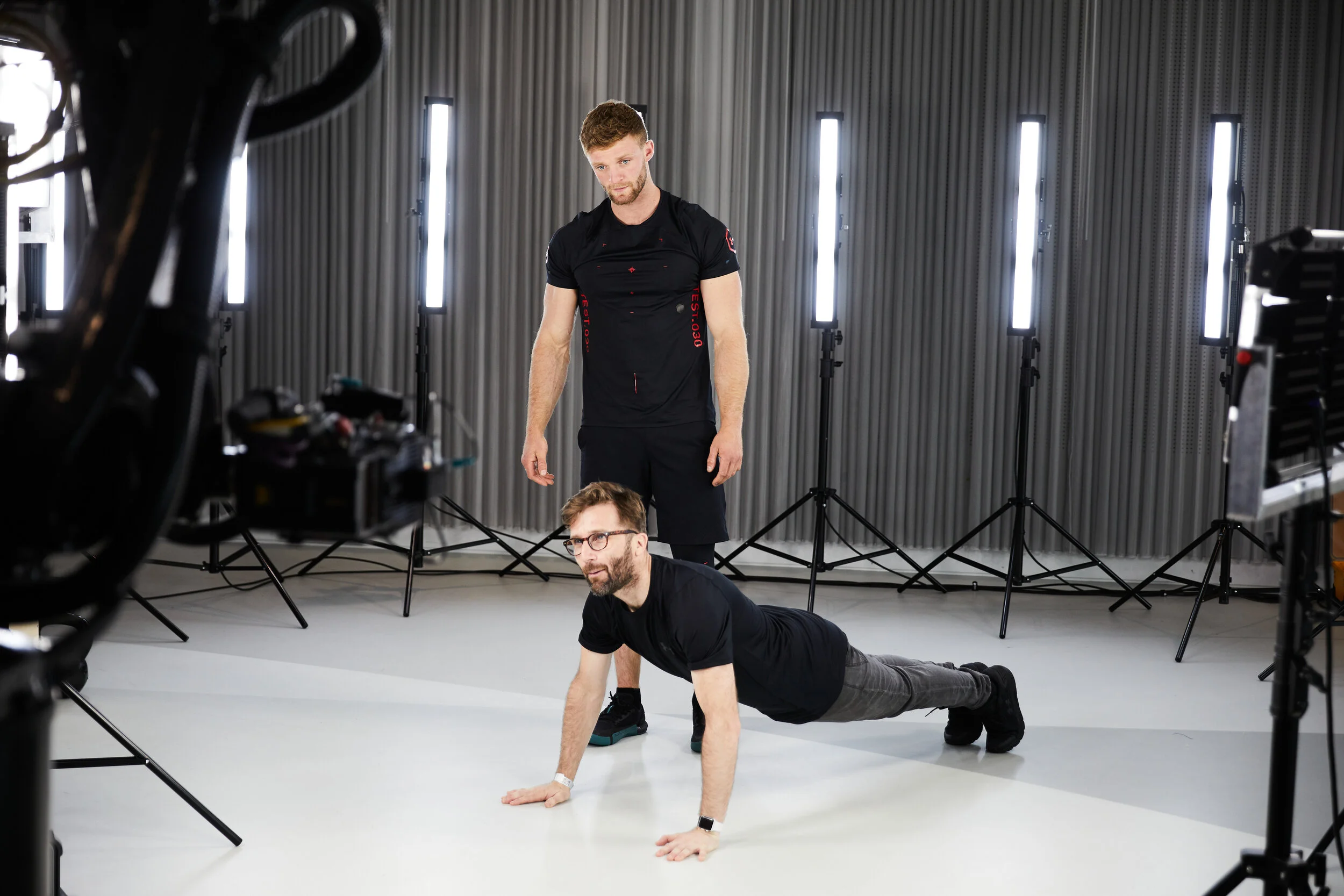NATHAN GALLAGHER
“Being kind is often more important than being right.
More often than not, being right can win the short term game. Being nice is the only way to win the long term game.”
Nathan Gallagher
Photographer, London, UK
The role of a photographer is an interesting one. Anyone can take a picture. I mean now we all have iPhones with great cameras equipped, but the difference of the output is where you see someone’s talent. Some people just turn up and shoot what they think looks good, whilst others see a vision they then set about bringing to life.
When you move into that realm of work you have to embrace tech- nology and trust your team to bring the whole thing to life. Nathan has taken a couple of chances here and there and built himself one of the best careers in the industry, regularly shooting Lewis Hamilton, David Beckham and Cristiano Ronaldo, all underpinned by his charm and wit, which seems to help him navigate through most situations.
Jonathan: So what’s your job title?
Nathan: I’m a commercial photographer and director specialising in movement and talent, although I shoot a wide range of different subjects. My studio is in London, but I work all over.
How did you go from the action sports world into more mainstream work?
Outside of snowboarding editorial/snowboard brands, my first big job was for Orange Mo- bile phones when they sponsored the British Ski and Snowboard Champs in Laax. I got the job because of my snowboarding specialty, but the agency liked me because the client liked me (I’m a nice guy). Also, I didn’t fuck up! After that, the client asked the agency if I could work on other projects with them and it spread out organically from there. After all these years, I still work with that same agency and client today - M&C Saatchi, EE.
Did you study photography?
My only qualifications are GCSE’s and the highest I got was an A in music (I didn’t study hard, found school boring at the time, I find it WAY more interesting now). When asked that qualification question in day-to-day life I usually just respond with the fact that my dad was a photographer (still is) but then again, who’s dad wasn’t? It does seem to be an acceptable answer to most people.
What would you tell your teenage self ?
My advice to my younger self would be: Being kind is often more important than being right. More often than not, being right can win the short term game. Being nice is the only way to win the long term game. I’m happy organically building a team of authentic people. It’s like winning by numbers. Eventually nice wins out. It’s about sending out love, as I will bend over
backwards to make everyone’s day successful.
Don’t be afraid to make mistakes, but be aware enough to learn from them. Also, the only difference between being an amateur photographer and a professional is your approach, there’s no outside affirmation aside from your day-rate, which is a flawed metric.
What advice would you have for a young photographer?
Learn how to run a business professionally; it will help both you and your clients. Sometimes I think I take photos for fun, but I get paid for everything else. Learn licensing, learn how to write a proper invoice/storyboard/production sheet. Look at the market you’re interested in and take notes, don’t copy what you see, but understand why you’re seeing the same images again and again - then create your own.
What were you into as a kid?
I have always been a geek. I taught myself how to program/ script for fun and even made a bit of money doing it, the techy computer world still fascinates me and the objectiveness of it brings the subjectiveness of the art world into sharp relief (eg. code works or fails definitively, an image works in varying de- grees). I use it today to keep myself amused as well as creating visual and functional solutions for my photographic work. My love of snowboarding is super important here too. The nuance of what makes a good snowboard/skate/bmx image
is translatable to fashion/portraiture and any other sport. Also, the situations you find yourself in when photographing snowboarding are often very stressful - no retakes, awkward shooting environment and harsh lighting conditions. I really believe that if someone is good at that, then they can do any kind of photography. For the record, I don’t believe I was ever that good, but I was young and I’ve got better since!
Any athletes you really enjoy working with?
I tell you who I find very interesting, and because he’s so interesting he’s fun to work with, is Lewis Hamilton. He is the Formula One racing World Champion and he is quite an enigma. Like, he’s had such a unique journey to get where he is and so we always enjoy working together. He also snowboards too! Working with him and Cristiano as well for that same reason. He’s the most asked about.
But there are so many other amazing people. Richard Whitehead, he’s a Paralympic champion. I mean he’s not just English famous, he’s not British famous, he’s world famous! The guy is utterly amazing and nothing to do with the fact that he runs with two prosthetic legs, he’s got so much energy. Max Whitlock as well. He’s a gymnast gold medalist. Just top of his game, and they are just so nice to work with.
Why are they so good to work with?
I think it’s a two-way street, you know. I don’t know that they’re like that with everybody, but it feels like music, you play music and the other person is able to riff off what you’re doing, it just works.
So your role becomes more to bring people to a comfort level to get the most out of them?
Yes I do whatever it takes to bring out genuine emotion of them. There’s a great quote from Kurt Vonnegut the author. He says, “we are who we pretend to be, so we have to be careful who we pretend to be.” It’s an incredible quote because it plays with that whole imposter syndrome thing.
So sometimes my role on set needs to be an authoritative one, especially when alacrity is required, but most times I try and put myself in the models shoes and imagine what I’d need to hear to give the required performance.



